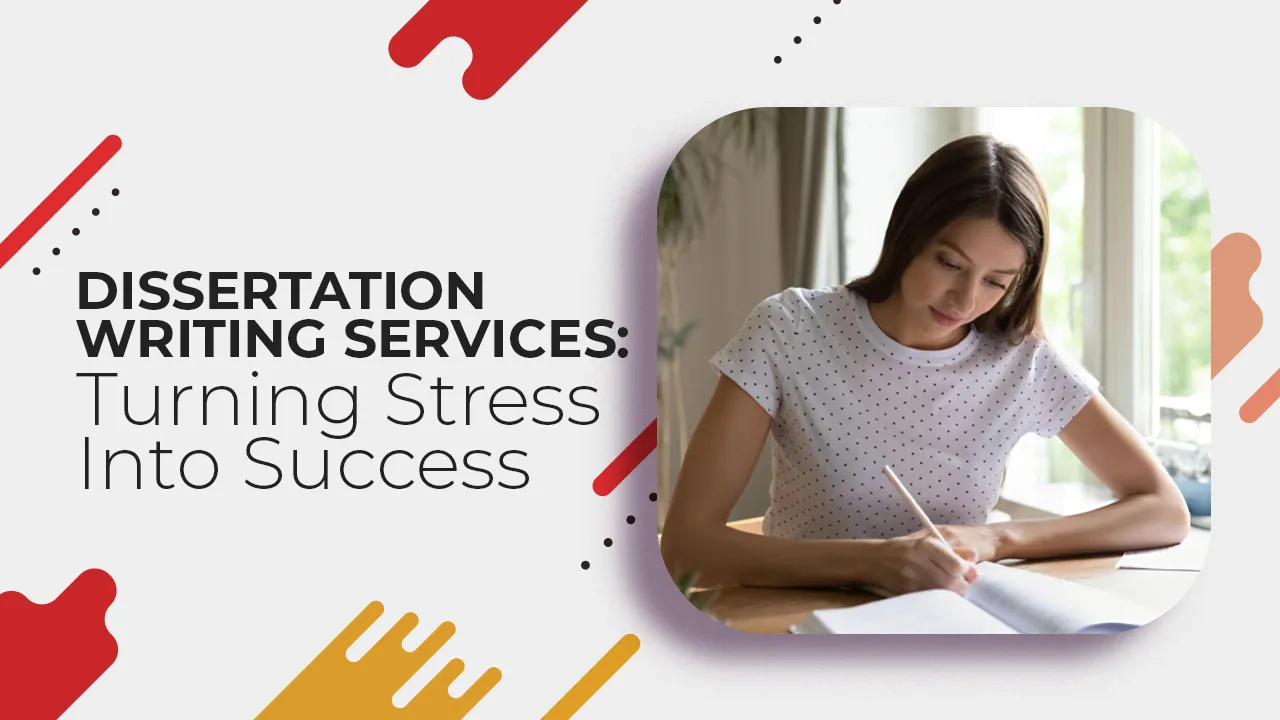How to Solve Academic Writing Problems: Smart Tactics

Written By
John Miller
✅ 100% Satisfaction | ⏰ 99% On Time | ⚡ 4+ Hour Delivery

Contents
Introduction
It is widely known that academic writing is a difficult educational task for students, that can easily exhaust them if the right strategies are not followed. It doesn't matter whether they're working on an assignment, thesis, or any other form of writing, the juggling between various sections remains the same daunting part. Thus students need to form the right writing habits from the start to build a strong writing base
This way they can avoid struggling later. To attain this students must explore suitable dissertation ideas and effective patterns to manage present hurdles. This way students develop specified techniques to seamlessly solve writing issues, presenting more accurate and focused writing. That's why some such effective strategies are explored below so that students can execute them with perfection

How to Overcome the Most Common Academic Writing Challenges
1. Tackle the Trouble of Information Overload
In academic writing, students often gather overwhelming amounts of information and data from many sources, articles, journals, and databases. While thorough research is ultimately beneficial, you may notice that too much information can lead to challenges when you start to evaluate the information.
Challenges: Confusing or contradictory information; trouble keeping track of references; loss of clarity around your main argument.
Some ideas to overcome challenges:
- Using mind mapping or a visual plan to help organise ideas.
- Focus on quality and substance over quantity of research, choosing 5-7 strong research sources versus dozens is often more than enough.
Consider ordering dissertation help; there are some professional dissertation help services available to filter, organise, and assess reliable sources quickly and efficiently, saving time and improving clarity.
2. Manage Academic meets Readable Language
Finding the right tone in your academic writing can be a challenge – balancing the formal tone required by academic writing versus creating an easy-to-read, friendly document takes skill.
Common Mistakes: Overusing jargonised or technical language, writing long and complex sentence structures, writing unclear acronyms or abbreviations without defining them.
Suggestions:
- Make the content clear and concise. Also, use inclusive, simple terms whenever possible.
- Define technical terms upon first usage.
- You should also use an active voice of writing to keep your reader more engaged, to match the academic tone and readability in a document to demonstrate mastery.
3. Steer Clear of the Precision Loop
While accuracy and precision are important to the writing process, they can hinder you if you get too wrapped up in the precise words or structure. Risks: Writer's block, over-editing, missing due dates, and burnout.
What to do:
- In the first draft, prioritise clarity over precision.
- Set realistic time limits when writing and editing.
If you are feeling stuck, consult with professionals, such as writing services for nursing assignment help. They can assist with reviewing the structure, content accuracy and tone to help you get moving forward.

4. Avoid Excessive Details to Keep Reader Engagement
Adding too many ideas or tangents can inadvertently inflate a word count and detract from clarity. Readers today have a limited attention span and expect content that is concise and relevant.
Why it matters: Long narratives can discourage readers from reading all the way through or comprehending the narrative.
Best practices:
- Adhere to the 80/20 rule: write 80% directly related to the thesis statement and offer supporting add-ons in 20%.
- Review the paragraph for its worth; does it move the central argument forward?
This cutting of fluff in scientific or technical writing improves the efficacy of your writing and keeps the reader engaged.
5. Control Self-Doubt During Writing
Self-doubt can occur even for students who score high. The anxiety attached to the potential of turning in a bad product, being rejected, or not getting the assignment done perfectly can actually lead to students either being frozen or just abandoning their assignment.
Common ways students show self-doubt: Avoiding writing sessions, overthinking every sentence, and feeling incompetent.
How to overcome:
- Focus on progress over perfection.
- Break your writing into sections that are small enough to be manageable.
- Call for help on assignment services when you encounter roadblocks.
Sometimes a second opinion, or someone to assist you in writing, can help reset your momentum again and provide direction when you feel stuck.
Curious to learn more? Take the next step by reaching out to us today. Thesis Help Service - Your Secret Weapon for Academic Success.Frequently Ask Questions (FAQ's)
How can I avoid the problem of information overload in dissertation writing?
Avoiding the problem of information overload is a must to move ahead in dissertation writing. Thus, preventing this requires sharp focus, trustworthy quality sources, and limited and relevant searches. In addition, adopting a visual representation of information can also be prioritised to make extensive data easy to handle.
What is the key to balancing academic precision with readability in my writing?
To achieve the right balance between academic precision and readability, students must research well to gain insightful information and use it in arguments with easy sentence framing. This way academic need for quality information can be satisfied while keeping easy readability in mind.
How can I prevent getting stuck in the perfection loop while writing?
It’s common to get stuck in the loop of perfection to achieve higher grades. Thus, to prevent this case, your students must shift their focus from perfection to providing clarity of thought. This way you can timely complete the assignment without getting stuck. Additionally, asking your teachers and expert professionals can help you overcome this issue, without searching for extreme perfection.
How do I maintain the optimal length for my dissertation without overloading the reader?
To frame a dissertation of optimal length without making it exhaustive for readers, you can follow an 80-20 rule. In this rule, 80% of writing contains main arguments, while the remaining 20% revolves around supporting points. Thus, readers' interest will be maintained in the writing without sacrificing the information’s load on the reader.
How can I overcome self-doubt and improve my confidence in academic writing?
It is quite common to develop self-doubt and confidence issues while working on academic writing. However, this issue can be fixed by breaking down the writing into manageable parts, grasping more information, and talking to your mentors. This way you can complete your quality work reflecting improved confidence, avoiding major issues of self-doubt by turning it into self-belief.

Conclusion
Academic writing can be framed as the task required by all students, but mastered by just a few. Thus, most students struggle with unique issues requiring expert dealing or guidance. However, these problems can be reduced, if not fully settled by resolving issues like an overload of information, unstable language use, prioritising perfection too much, maintaining the right length, and situations of self-doubt. This way, all major issues can be addressed with extra care and preciseness, resulting in error-free and on-time writing. Thus, by combining the above-described solutions with expert-provided tips, students advance their writing by showing positive confidence and patience. Hence, it’s fitting to say that with these tips and techniques, students can conquer the mountain of academic writing to witness the sunrise of educational growth.
Your email address will not be published. Required fields are marked *
Recent Post

15 Sep 2025
Save Grades with Fast Assignment Support
30 Jul 2024
Transform Your Dissertation writing Journey
20% OFF!

This blog really nails the common struggles students face in academic writing. I especially appreciate the advice on managing self-doubt. It’s reassuring to know that even top students experience this, and the steps to overcome it are super helpful!
I can totally relate to this post! The struggle with self-doubt is real, but the tips offered here make it feel more manageable. This blog really provides valuable advice for overcoming those academic writing hurdles!
It’s refreshing to see a blog that acknowledges the emotional side of academic writing. The strategies shared here feel like they can genuinely help.
This is exactly what I needed to hear! The advice is practical and relatable, making the challenge of academic writing feel less daunting.